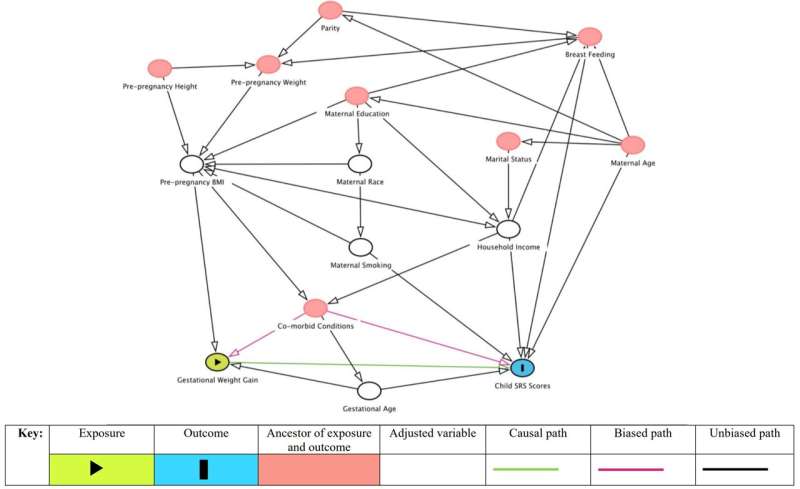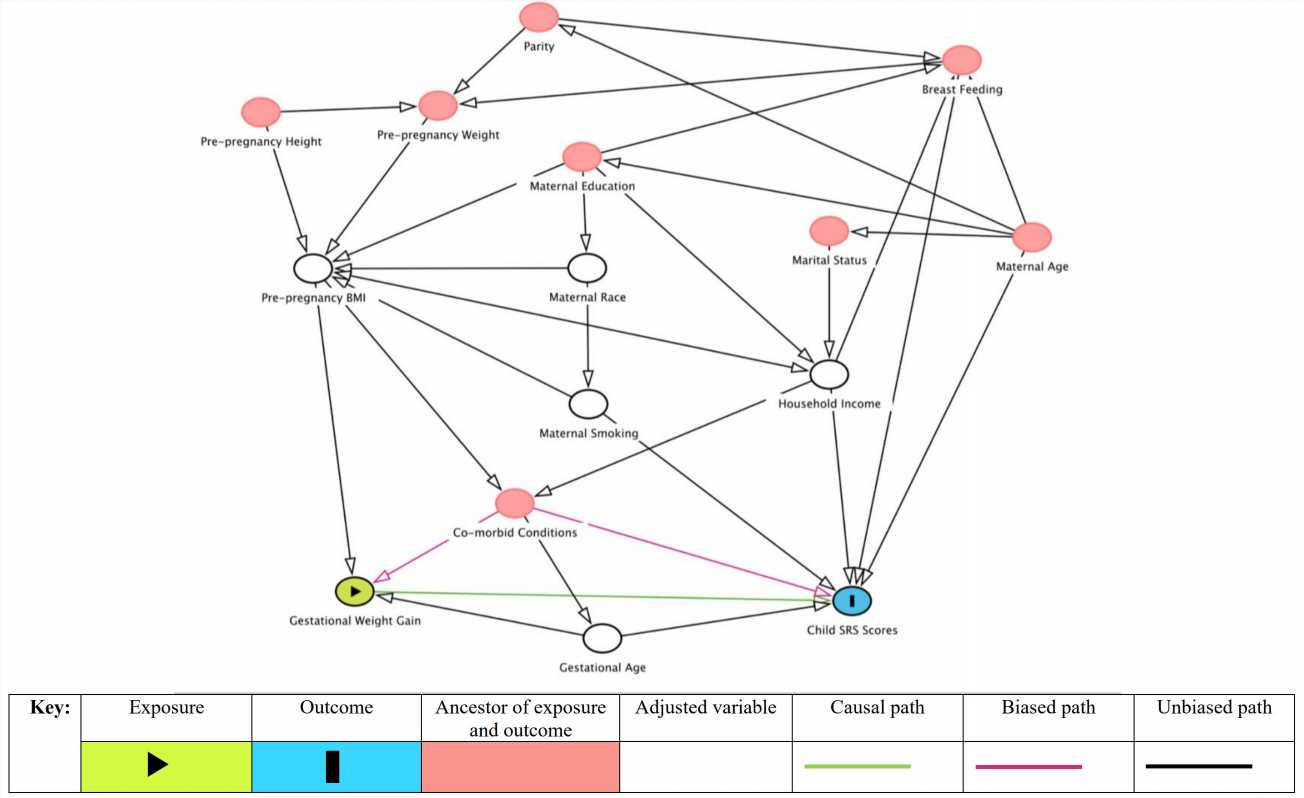
Gestational weight gain may be associated with autism-related behaviors among children who have a greater pre-disposition to these behaviors and who have mothers with pre-pregnancy overweight or obesity, according to a new study in Obesity.
Excessive gestational weight gain has been associated with neurodevelopmental outcomes in children, including autism spectrum disorder and related traits. However, it is unclear how pre-pregnancy body mass index (BMI) or familial susceptibility to autism spectrum disorder influences the gestational weight gain-autism traits association, according to experts.
“Our study findings are relevant for clinicians, pregnant individuals and those considering becoming pregnant as gestational weight gain and pre-pregnancy body mass index are modifiable factors, that when addressed, can promote health for the pregnant person and their developing fetus,” said Marisa A. Patti, A.J. Drexel Autism Institute, Drexel University, Philadelphia, Pa. Patti is the corresponding author of the study.
Patti added that for clinicians, it is key to identify sub-populations that may be more susceptible to neurodevelopmental outcomes (in this case, autism-related behaviors in children) to promote more targeted interventions among pregnant people. Pregnant individuals may benefit from counseling or education on guidelines for healthy weight gain during pregnancy such as those outlined by the American College of Obstetricians and Gynecologists.
While pre-pregnancy BMI is not modifiable during pregnancy, gestational weight gain can be. Those considering becoming pregnant can best prepare themselves to optimize their health during gestation by modifying their BMI prior to becoming pregnant, and by knowing recommended weight gain trajectories.
Using data from the Early Autism Risk Longitudinal Investigation (EARLI) study, a familial enriched co-hort of mothers who had a previous child with autism and the Health Outcomes and Measures of the Environment (HOME) study, a general population co-hort, gestational age and pre-pregnancy BMI category-specific gestational weight gain z scores were calculated.
Caregivers completed the Social Responsiveness Scale to assess the presence and severity of autism-related traits in children 3-to-8 years old. The association between gestational weight gain z scores and autism-related behaviors in children were estimated using quantile regression.
In the HOME study, among mothers who had overweight or obesity pre-pregnancy BMI values, gestational weight gain z scores and social responsiveness scale scores were positively associated in children with more autism spectrum disorder related traits, but not in children with fewer autism-related traits.
For example, the strength and magnitude of associations between gestational weight gain z scores and social responsiveness scale T-scores among those who had overweight or obesity pre-pregnancy BMI values increased from the 50th to the 95th percentiles of the social responsiveness scale T-score distribution. Similar patterns were observed in the EARLI study among mothers with pre-pregnancy obesity.
The research is published in the journal Obesity.
More information:
Marisa A. Patti et al, Prepregnancy BMI, gestational weight gain, and susceptibility to autism‐related traits: the EARLI and HOME studies, Obesity (2023). DOI: 10.1002/oby.23710
Journal information:
Obesity
Source: Read Full Article
